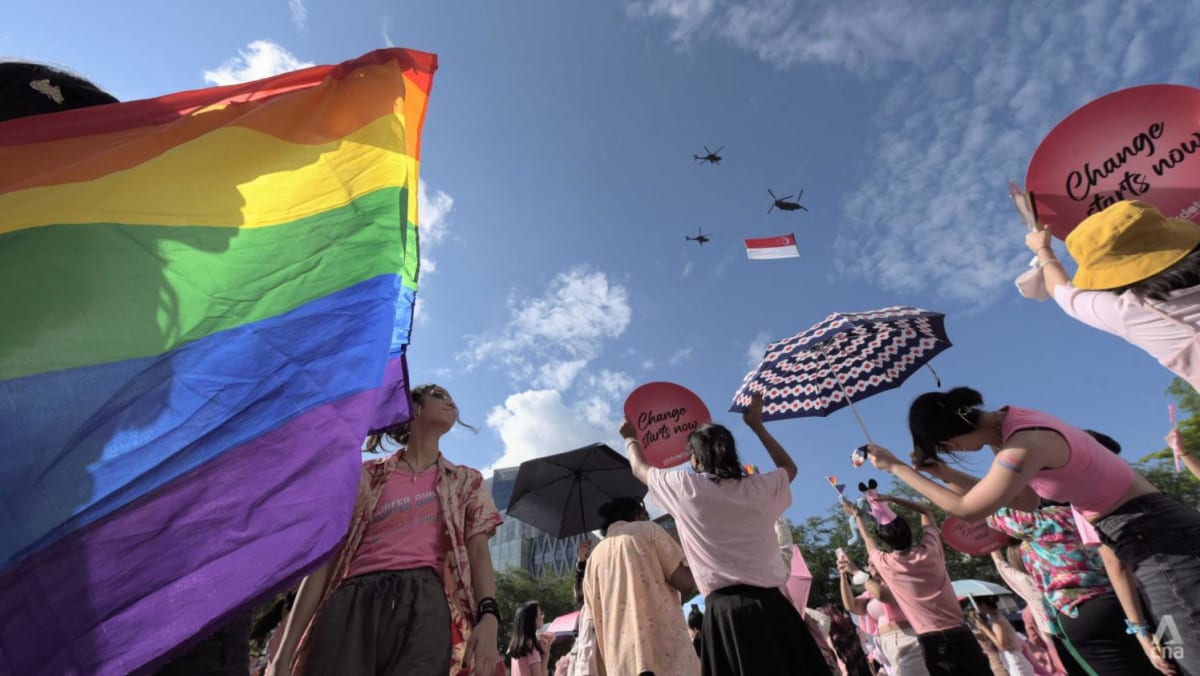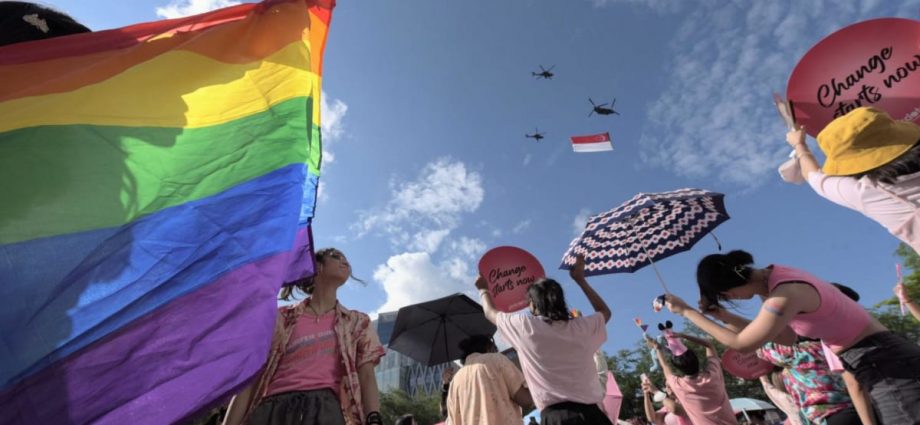
Mr Lee said Singapore is by and large a conservative society that believes marriage should be between a man and a woman, children should be born and raised within such families, and that the traditional family should form the basic building block of society.
“Most Singaporeans would like to keep our society like this. This is the Government’s position too. We have upheld and reinforced the importance of families through many national policies, and we will continue to do so,” he said.
However, Mr Lee said Singapore, like every human society, has gay people in its midst.
“They are our fellow Singaporeans. They are our colleagues, our friends, our family members. They too want to live their own lives, participate in our community and contribute fully to Singapore,” he said.
“And we need to find the right way to reconcile and accommodate both the traditional mores of our society, and the aspiration of gay Singaporeans to be respected and accepted.”
PROTECTING DEFINITION OF MARRIAGE
Still, Mr Lee pointed out that under current laws, the definition of marriage – like Section 377A – could be challenged constitutionally in the courts, saying that this has happened in other countries.
“If one day such a challenge succeeds here, it could cause same-sex marriages to become recognised in Singapore,” he said.
“And this would happen not because Parliament passed any such law but as the result of a court judgment.”
Even if the majority of MPs opposed same-sex marriage, Parliament might not be able to simply change the law to restore the status quo ante, Mr Lee said, adding that Parliament might need to amend the Constitution with a two-thirds majority.
“I do not think that for Singapore, the courts are the right forum to decide such issues,” he said.
“Judges interpret and apply the law. That is what they are trained and appointed to do … But judges and courts have neither the expertise nor the mandate to settle political questions, or to rule on social norms and values. Because these are fundamentally not legal problems, but political issues.”
Even then, those seeking change could still try to “force the pace” through litigation, Mr Lee said, stressing that this was “adversarial” in nature and would highlight differences, inflame tensions and polarise society.
“And I’m convinced this would be bad for Singapore,” he said.
Therefore, the Government will protect the definition of marriage from being challenged constitutionally in the courts by amending the Constitution, Mr Lee said, adding that the legal definition is contained in the Interpretation Act and Women’s Charter.
“This will help us to repeal Section 377A in a controlled and carefully considered way,” he said.
“It will limit this change to what I believe most Singaporeans will accept, which is to decriminalise sexual relations between consenting men in private.
“But we will also keep what I believe most Singaporeans still want, and that is to retain the basic family structure of marriage between a man and a woman, within which we have and raise our children.”
BEWARE OF “CULTURE WARS”
Mr Lee said the Government sought a “political accommodation” that balances different legitimate views and aspirations among Singaporeans.
But he warned Singapore against going down the road of “culture wars”, where strongly held opposing views push harder and harder against each other.
“And in some Western societies, not few, this has resulted in culture wars, contempt for opposing views – and not just for the views but for the opposing people – cancel culture to browbeat and shut up opponents, and bitter feuds splitting society into warring tribes,” he said.
“There are some signs of similar things starting to happen here too. I say let us not go in this direction. All groups should exercise restraint, because that is the only way we can move forward as one nation together.”
Mr Lee said there is much more to be said on this “difficult subject”, acknowledging that his announcement will set off further reactions and discussion ahead of a “full debate” as the legislation enters Parliament.
“We have a stable and generally harmonious society, and we will work hard to keep things like this,” he added.
“I hope the new balance will enable Singapore to remain a tolerant and inclusive society for many years to come.”

